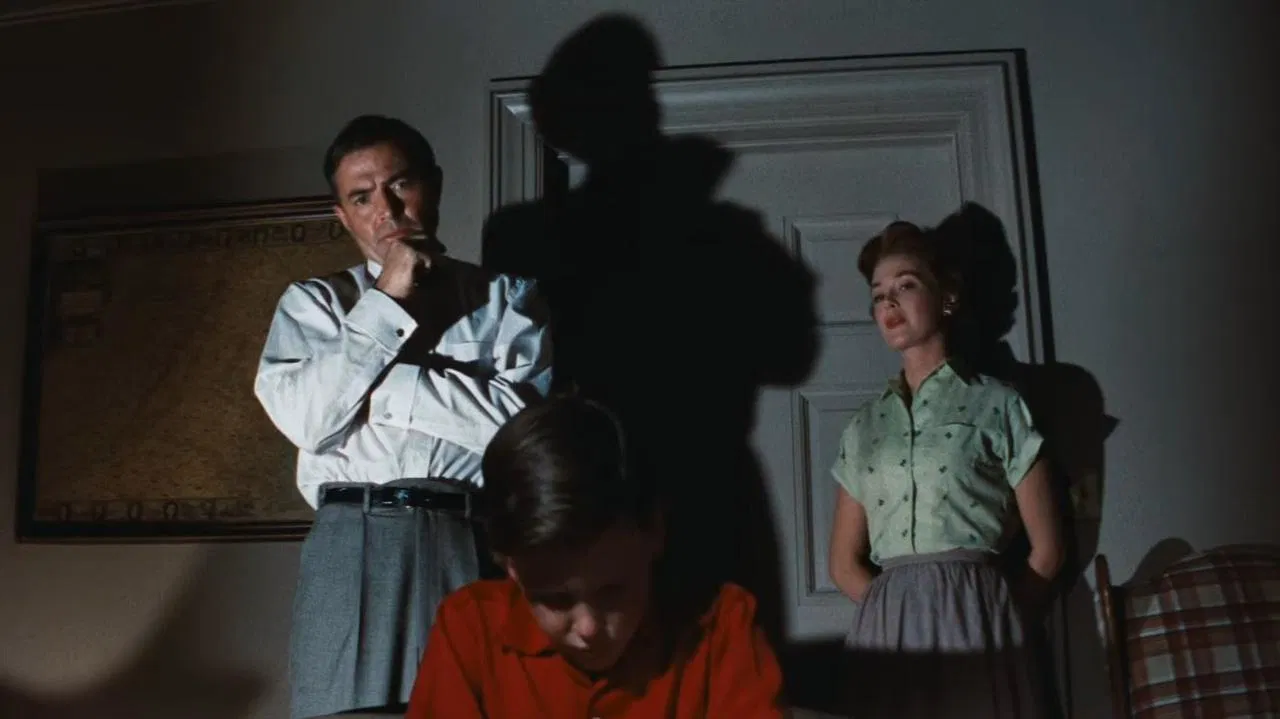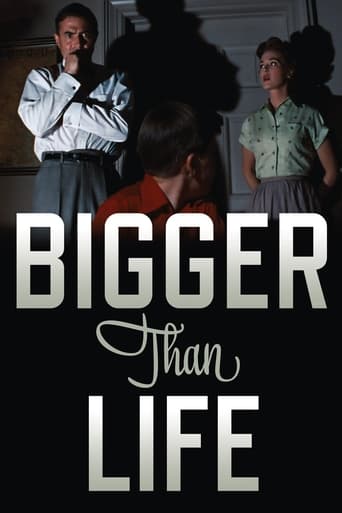

Watch something else. There are very few redeeming qualities to this film.
... View MoreJust intense enough to provide a much-needed diversion, just lightweight enough to make you forget about it soon after it’s over. It’s not exactly “good,” per se, but it does what it sets out to do in terms of putting us on edge, which makes it … successful?
... View MoreIt's a movie as timely as it is provocative and amazingly, for much of its running time, it is weirdly funny.
... View MoreThe movie is surprisingly subdued in its pacing, its characterizations, and its go-for-broke sensibilities.
... View MoreI saw A Hatful of Rain and Bigger Than Life in the same evening, because they seemed to make the perfect double feature as they both dealt with addictions. (They had been on my short list of movies to see for a while.) I watched A Hatful of Rain first. I liked it for certain things, but was glad to have left Bigger Than Life for last. While the first film was good, this film was exceptional. James Mason's performance as a teacher who needs to take cortisone to cope with an illness and getting hooked to it is mesmerizing. I could say he was the whole show, but he's not. The production values overseen by director Nicholas Ray were grade A, including the great supporting cast and the overall feel that this was taking place today and that it could be anywhere. It felt that real. A Hatful of Rain felt a little too stagy and like it was trying too hard to be self-important and/or preachy. But this film showed the people and the problems and let them speak for themselves. Barbara Rush and Walter Matthau were all excellent and young Chris Olsen, also from The Man who Knew Too Much, is unbelievable in his role as Mason's impressionable son. I doubt I would see A Hatful of Rain again despite its good actors and somewhat tender take on the subject matter, but I could watch Bigger Than Life right now. That's the test of a great film. That it makes the viewer want to see it again and that it stands up to several viewings, with the viewer never losing interest and maybe finding more and more in it. There's more than what you see, in this bigger than life story featuring the under-rated actor James Mason.
... View Morethis is a very fun movie, especially to see with a responsive crowd. well meaning but overheated with casting that adds to the silliness resulting in a campy drama. (and for this I compare it to Mildred P, the films aren't terribly similar in any detail. this story is far simpler)there is also a very nice score by David Raksin* who seems to have been breathing the same "Atmostpheres" as Györgi Ligeti in a tech-y EKG sequence.* whose name I always thought was "Raskin" and it seems to me that William Winant, who knew or studied with DR pronounced it "Raskin" as well, but then on NPR I kept hearing "Raksin" and then came here to check, as the NPR guide also listed the composer's name as "Raksin"(I only mention this because I didn't have enough lines to publish the review.)
... View MoreEd Avery (James Mason) is a typical (though idealized) 1950s husband and father who is facing serious health problem. To save his life, he begins taking the controversial new drug Cortisone which soon brings about a major – and quite shocking – personality transformation.James Mason is superb in this role. At first, he's charming and lovable, but gradually morphs into a horrifying monster. He had me utterly convinced he was really vile and very dangerous. Barbara Rush gives a good performance as the steadfast housewife and mother who loves him, no matter how grotesque he becomes. Walter Matthau is likable in a supporting role as Ed's co-worker. The movie was directed by Nicholas Ray ("Rebel Without a Cause") and had some surprisingly blunt and realistic dialogue for 1956.This story is even more relevant today with so much drug abuse and dependence. Mason's transformation from 'Father Knows Best' to 'Mr. Hyde' is utterly believable and frightening. Good movie.
... View MoreNicholas Ray directs this gripping and sometimes dark drama about an affable school teacher Ed Avery(James Mason)trying hard to sustain his vision of the classic American dream. Avery is a loving husband and well respected citizen. His wife(Barbara Rush)has no idea that her husband is working a second job at a taxi company to keep their style of living afloat. Mr. Avery's physical and mental stress causes him to collapse; and being treated with experimental doses of the hormone cortisone expounds his problems. The "miracle drug" has side effects that make the mild mannered Avery go on a destructive campaign to destroy his beloved prim suburban lifestyle. The supporting cast features: Walter Matthau, Roland Winters, Rusty Lane and Betty Caulfield. You may also recognize William Schallert and Jerry Mathers.
... View More